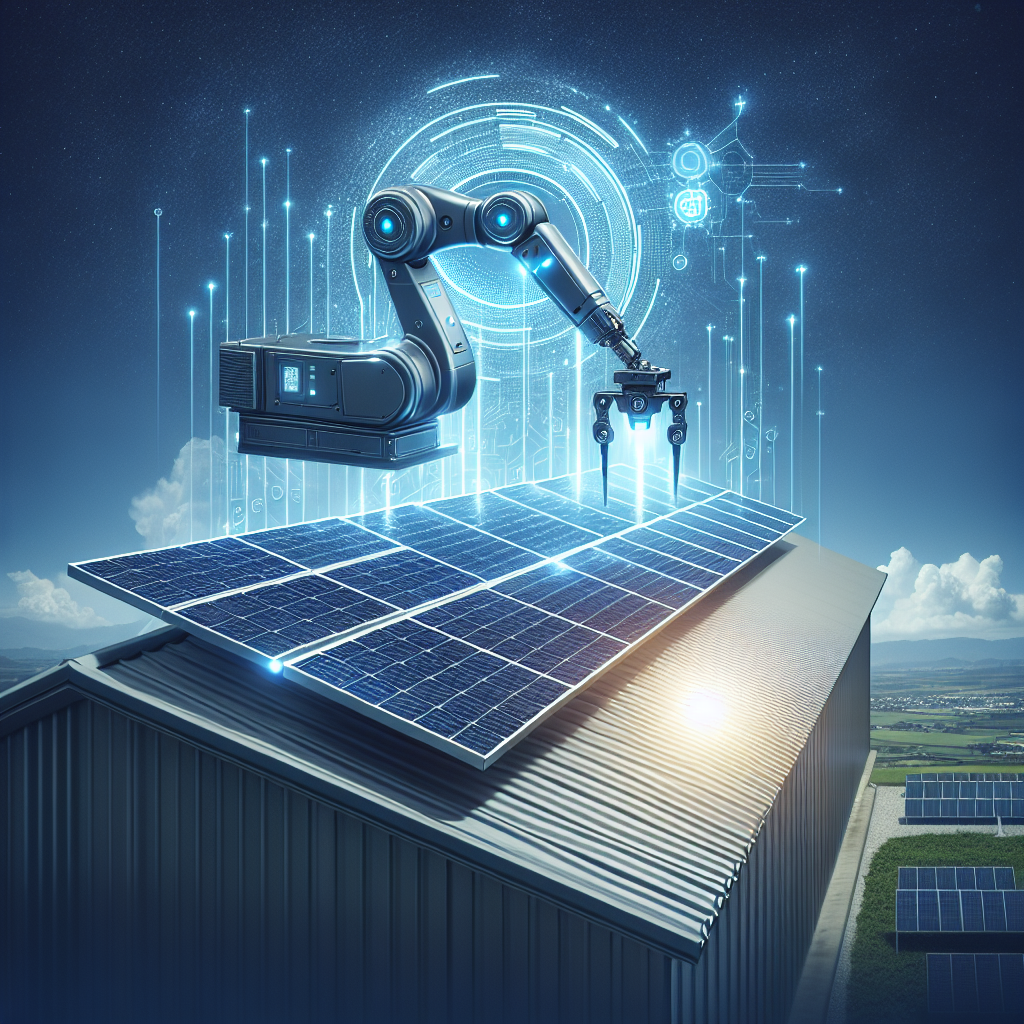Advantages of AI in Improving Efficiency of Solar Panel Installation
In recent years, the use of artificial intelligence (AI) has revolutionized many industries, including the solar energy sector. AI technology has the potential to improve the efficiency and accuracy of solar panel installation, making it easier and more cost-effective to harness the power of the sun for renewable energy. In this article, we will explore the various advantages of using AI in solar panel installation and how it can help to increase the adoption of solar energy.
1. Enhanced Site Assessment
One of the key advantages of using AI in solar panel installation is the ability to conduct more accurate and efficient site assessments. AI algorithms can analyze a variety of data sources, such as satellite imagery, weather patterns, and shading analysis, to determine the optimal placement of solar panels on a specific property. This helps to maximize the energy output of the system and ensure that the installation is done in the most efficient manner possible.
2. Improved Design and Planning
AI can also assist in the design and planning of solar panel installations. By using advanced algorithms, AI technology can optimize the layout of solar panels on a roof or property to maximize energy production and minimize shading. This not only improves the efficiency of the system but also reduces the overall cost of installation by minimizing the number of panels needed.
3. Increased Automation
Another advantage of AI in solar panel installation is the increased level of automation it provides. AI technology can be used to automate various aspects of the installation process, such as panel placement, wiring, and monitoring. This reduces the need for manual labor and speeds up the installation process, leading to cost savings and increased efficiency.
4. Predictive Maintenance
AI can also be used to monitor the performance of solar panel systems and predict potential maintenance issues before they occur. By analyzing data from sensors and other sources, AI algorithms can identify trends and patterns that indicate a potential problem with the system. This allows for proactive maintenance to be carried out, reducing downtime and extending the lifespan of the system.
5. Energy Optimization
AI can also help to optimize the energy output of solar panel systems by adjusting parameters such as panel tilt, orientation, and tracking. By continuously monitoring and adjusting these variables, AI technology can ensure that the system is operating at peak efficiency at all times, maximizing energy production and reducing overall costs.
6. Improved Customer Experience
Using AI in solar panel installation can also improve the customer experience by providing more accurate and timely information about the installation process. AI-powered tools can provide real-time updates on the status of the installation, estimated energy production, and potential savings, giving customers peace of mind and confidence in their investment.
FAQs
Q: How does AI improve the efficiency of solar panel installation?
A: AI technology can enhance the efficiency of solar panel installation by providing more accurate site assessments, optimizing design and planning, increasing automation, predicting maintenance issues, optimizing energy output, and improving the overall customer experience.
Q: Can AI be used to monitor the performance of solar panel systems?
A: Yes, AI can be used to monitor the performance of solar panel systems by analyzing data from sensors and other sources to identify potential maintenance issues and optimize energy output.
Q: What are the cost savings associated with using AI in solar panel installation?
A: Using AI in solar panel installation can lead to cost savings by reducing the need for manual labor, optimizing the design and planning of the system, predicting maintenance issues, and maximizing energy production.
Q: How can AI help to increase the adoption of solar energy?
A: By improving the efficiency and accuracy of solar panel installation, AI technology can help to reduce the overall cost of solar energy systems, making them more accessible to a wider range of customers and increasing the adoption of renewable energy.
In conclusion, the use of AI in solar panel installation offers a wide range of advantages, from enhancing site assessments and design to increasing automation and predicting maintenance issues. By leveraging the power of AI technology, the solar energy industry can improve efficiency, reduce costs, and accelerate the adoption of renewable energy sources. As the technology continues to evolve, we can expect to see even greater benefits in the future.

